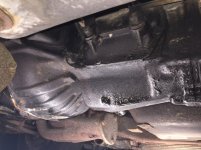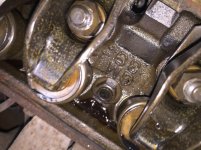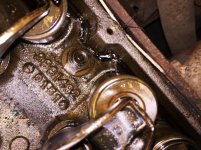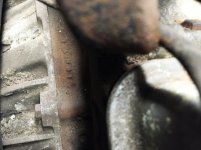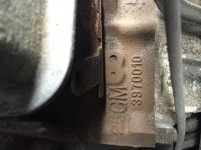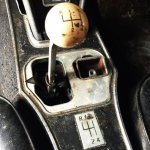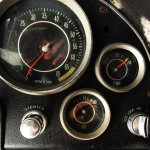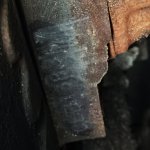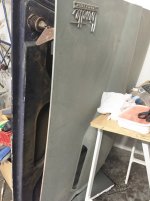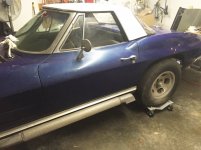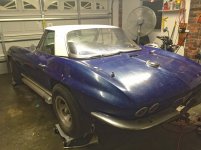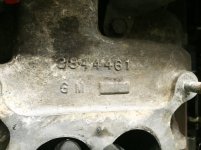ShawnBeau
Member
Hi all. I've got a 64' Convertible w/ hard top in the garage for the past decade, that was in a dry barn and garage for some time. I posted some pics over at a thread a few years ago if it looks familiar, but I went on the road for a while and shuttered the project due to old British motorcycles taking over my mind and a lack of time. Now I'm turning all my attentions to this car. Main focus isn't full restoration, main focus is making it a Sunday driver for now that safely starts and stops and does what it's supposed to do. I am competent with a wrench and have prevented myself from getting stranded on the side of the road by necessity & sudden part replacements multiple times with various vehicles, but have never had a "barn" car before. I'm concerned with where and which parts to acquire in what order. I'm well aware that this is going to take some weeks of undivided attention to get it running and much more time than that to make it 100%. All good.
I know there's a long list of parts that will be in safe working order (like the motor itself, with some cleaning and adjustment), and also a long list of parts that need to be replaced (anything rubber). But, not 100% sure of which is which at the moment. Also never messed with repair of a manual car before.
So: Any advice on what to tackle in what order and what initial parts to have on hand to get it a driver condition would be appreciated from those who have been here before.
Specs: 1964 Stingray Convertible, Manual, originally Ermine White 327/365 car w/ Holley. Currently has an early 70's SS over the counter GM 350 Racing block in it that was built for a sprint car, but removed with low miles has pop up pistons and racing cam. It's missing the Carb. Block has been stored with SeaFoam/PB Blaster in the block for about a decade. Car last Ran in mid 1980s and was stored in a dry barn, I was there for that to happen, and know that the only reason why it was put in the barn was that the gas tank rotted out. Was 100% running fine / working order when stored.
I am in the process of cleaning it with more attention, in and out, and I have a full enclosed garage with a decent amount of needed tools and can acquire more / rent / get a couple buddies to help with muscle as needed. I'm fine and used to getting my hands dirty with various cars ... so time to get some advice and start purchasing parts.
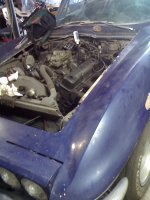
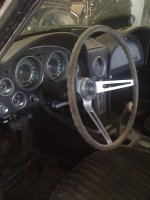
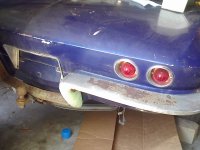
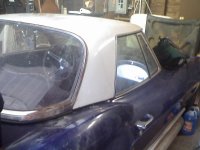
Again: At present I'm concentrating on making it a driver, and will be working on it every week until it's there. Later I will get to a better restoration, but for now, I need this thing moving around.
Appropriate advice appreciated. Thanks again everyone. Look forward to your extensive wisdom.

I know there's a long list of parts that will be in safe working order (like the motor itself, with some cleaning and adjustment), and also a long list of parts that need to be replaced (anything rubber). But, not 100% sure of which is which at the moment. Also never messed with repair of a manual car before.
So: Any advice on what to tackle in what order and what initial parts to have on hand to get it a driver condition would be appreciated from those who have been here before.
Specs: 1964 Stingray Convertible, Manual, originally Ermine White 327/365 car w/ Holley. Currently has an early 70's SS over the counter GM 350 Racing block in it that was built for a sprint car, but removed with low miles has pop up pistons and racing cam. It's missing the Carb. Block has been stored with SeaFoam/PB Blaster in the block for about a decade. Car last Ran in mid 1980s and was stored in a dry barn, I was there for that to happen, and know that the only reason why it was put in the barn was that the gas tank rotted out. Was 100% running fine / working order when stored.
I am in the process of cleaning it with more attention, in and out, and I have a full enclosed garage with a decent amount of needed tools and can acquire more / rent / get a couple buddies to help with muscle as needed. I'm fine and used to getting my hands dirty with various cars ... so time to get some advice and start purchasing parts.




Again: At present I'm concentrating on making it a driver, and will be working on it every week until it's there. Later I will get to a better restoration, but for now, I need this thing moving around.
Appropriate advice appreciated. Thanks again everyone. Look forward to your extensive wisdom.

Last edited:



